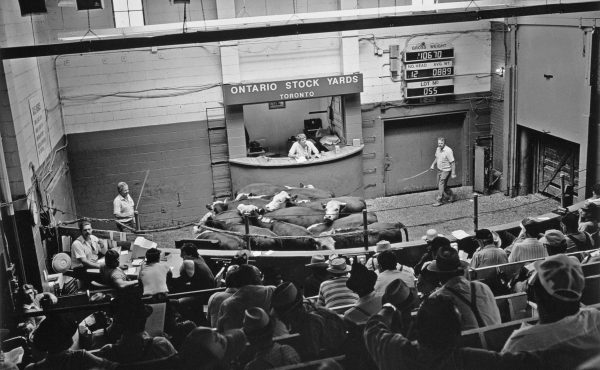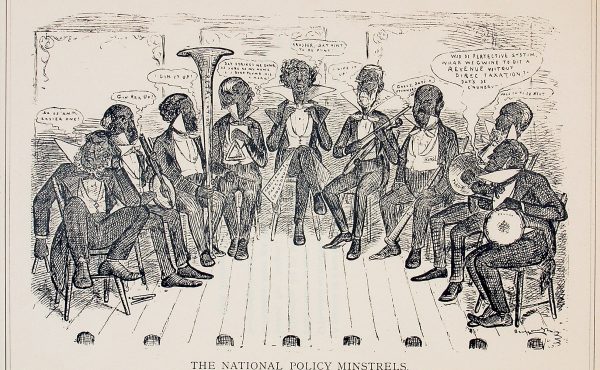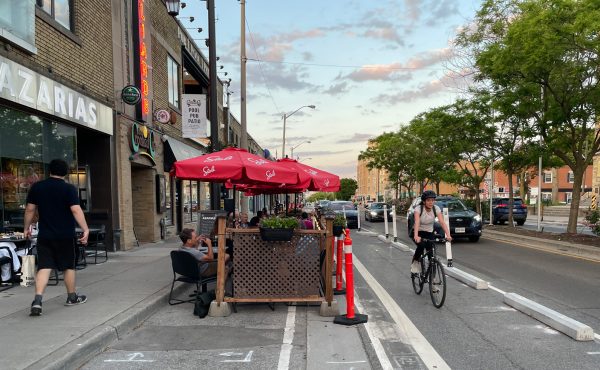I recently read an article by the English historian Paul Slack about perceptions of London, England in the seventeenth century. During this century, the city grew from 5% to over 10% of England’s population — over half a million people — becoming the largest in western Europe.
The article opens with two quotes that use anatomical metaphors to describe this growing metropolis. They neatly summarize the two contrasting attitudes towards the dominant city of the kingdom.
Great towns in the body of the state are like the spleen … in the body natural: the monstrous growth of which impoverisheth all the members, by drawing to it all the animal and vital spirits, which should give nourishment unto them. (Peter Heylyn, 1652)
The metropolis is the heart of a nation, through which the trade and commodities of it circulate, like the blood through the heart, which by its motion giveth life and growth to the rest of the body; and if that declines, or be obstructed in its growth, the whole body falls into consumption. (Nicholas Barbon, 1685)
I had a “the more things change, the more they remain the same” feeling when I read these quotes. These basic attitudes — that the metropolis sucks up money, energy and talent from the rest of the nation, or, by contrast, that the metropolis is the engine of the national economy — are still common attitudes expressed about big cities, including Toronto in relation to Ontario or Canada as a whole.
It’s particularly relevant to me after reading Alan Broadbent’s insight in Urban Nation that in the last two decades, the Greater Toronto Area’s growth has accelerated while that of Canada’s medium-sized cities has largely stagnated. Toronto is becoming the metropolis of Canada in a much more pronounced way than used to be the case. The GTA already includes more than 10% of Canada’s population, similar to London’s position in England in 1700.
This position translates into a similar set of contrasting attitudes, in the way that people outside the city seem to agree on hating and resenting the city, and equally in the way Torontonians complain that they play a vital role the nation’s economy but get no respect for it. In the rest of the article, Slack explores other seventeenth-century attitudes to the metropolis that also resonate in modern opinions — that London is dirty and polluted, a place of excessive luxury and consumption, a breeding ground of vice, or, by contrast, that London is the epicentre of culture, vitality and innovation.
As Toronto becomes more of a metropolis, these contrasting attitudes seem to be becoming stronger and translating into politics. The contrast between Toronto’s provincial and federal politics, which are now completely dominated by centrist and left parties, and that of rural areas, which are increasingly dominated by conservative parties, has become stronger and stronger over the last 20 years, and now appears set in stone (with smaller cities and suburbs serving as the swing vote).
I also hear echoes of these contrasting attitudes to the metropolis among people I know who have moved to Toronto. Some love being in the big city, while others have had to come here because it’s where the opportunities are, but don’t really enjoy it — its pollution, its crowdedness, its lack of nature — and long for smaller cities or the country. It’s by no means a result of narrow-mindedness — I have one friend who moved here a couple of years ago after living in a largely rural area, who has made strong and sincere efforts to come to terms with the city, exploring all of its ravines and other natural areas and delving into its character and history. But he simply does not feel at home, and plans to move back to a smaller town soon.
No doubt some of this is based on the environment we grew up in — I have lived in city centres since I was four years old — but I think some of it must be based on personal factors. For example, I don’t like driving, and I seem to have a stronger negative physical reaction to molds and pollens than I do to smog. So it makes sense that I like living in the city (I certainly enjoy spending time in the country too, I find it beautiful and refreshing, I just can’t imagine living there for long).
I am curious about how our readers, especially those who have moved here from elsewhere, feel about the metropolis. I’m not interested in a political discussion about the benefits of cities — as you can see from the quotes above, it’s been going on for hundreds, perhaps thousands, of years — but rather in the range of personal feelings about the metropolis. How did you feel about Toronto before coming here? Did you share some of the negative or positive attitudes noted above? How do you feel about living in a big city now that you are here?





3 comments
Ever since Grade 4 at Blythwood Elementary, which was the city’s sesquicentennial year and made me think about the city in a new way, I’ve been musing about the way Toronto is developing. I feel the city is on an identifiable path in terms of how it is perceived and how its citizens live.
Phase I was Pittsburgh or Dallas — a compact place with an urban identity but essentially still suburban and homogeneous to the rest of its region. This was Toronto up until, say, 1970.
Phase II is the current Chicago- or San Francisco-like phase of being the mighty centre of a large area that is beginning to break away from the rest of the region in terms of lifestyle and social issues and perception of metropolis, but still depends mostly on cars, sprawl, suburban offices, etc. once you get outside the now-sizable urban centre.
Will Toronto make it to Phase III and become like New York or London, a nearly independent metropolis completely of its own environment, intentionally and irrevocably different from its surroundings and even its nation? I’ve lived in both places and I think there is a ways to go but the pattern is emerging. Here in New York, the voting patterns, the car-free/train-heavy lifestyle (trains to the beach!), the cost of housing and various other aspects give New Yorkers a complete immersion in the metropolis that is truly distinct from life outside the city. It’s not even recognizably American – once you leave Times Square you’re really not in Kansas anymore. Toronto will need decades to accumulate more density, more infrastructure and more political power but it could well be playing a New York role by mid-century…
(Phase IV is to actually declare independence as a city-state, like Singapore or Hong Kong. This will never happen in North America, but it’s fun to think about.)
I moved to Toronto for university from a small town in Eastern Ontario. I had never heard anyone bash Toronto in the first 18 years of my life. I had never even really visited Toronto except to go to Canada’s Wonderland and the ROM. All I knew was it was bigger, and I assumed it would be more exciting, which it is.
I instantly loved it here. I loved my new found anonimity, which says a lot more about me at the time than it does about Toronto. I embraced the metropolis for the things that most people dislike about it. At the same time, I really took to the live music, clubs and bars.
However, towards the end of my four years at school, I started to really dislike Toronto for the lack of connections, its inaccessibility, its cruelness, the angry motorists, the angry pedestrians. The metropolis had caught up with me. Granted, I was under stress from school, which probably exentuated the negativity. The nightlife was no longer as exciting.
I realized that I would have to put an effort into getting off campus and exploring the city, in engaging in activities and causes that I cared about. I was surprised to find (over a period of time) that people in Toronto are actually friendlier than in my home town. People in this city are engaged in so many different activities with the purpose of making the city better. A lot of people here really care. I realized that all those years, I was only really scratching the surface. Now that I’ve immersed myself in it, I could never really get out. I feel a much greater sense of community in Toronto than I feel when I return to the small town that raised me. Its not just about the friends you make, but about a collective desire to make the city you live in better – from the graffitti artist to the social and arts benefactors, that civic pride is what makes Toronto great.
When it comes down to it, how you feel about a certain place is completely subjective, and dependent on personal biases and moods. Personally, I’m more interested in meeting other civically minded individuals than on whether people say “hello” to me when I walk down the street.
I’ve found that my level of positive feeling about living in Toronto is directly proportional to my disposable income.